
Members
The members of the project are joining from several institutions in New Zealand at the University of Auckland (School of Computer Science, Auckland Bioengineering Institute, Faculty of Medical Health Science) and the Mātai Institute, and in Singapore (Nanyang Technological University).
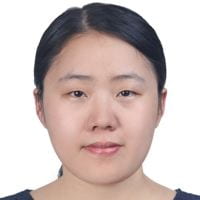
Miao Qiao
Lecturer - CS School UoA
Miao Qiao obtained her Ph.D. degree from the Chinese University of Hong Kong in 2013. Her research focuses on the efficiency issue of big data processing, especially on graph data management, query optimization, stream processing and I/O-efficient algorithms.
Miao is the Principal Investigator and science leader for the New Zealand team.
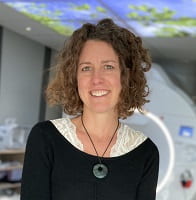
Samantha Holdsworth
Senior Lecturer - FMHS UoA & Mātai Institute
Dr Samantha Holdsworth is a medical physicist with over 18 years of experience in MRI acquisition, post-processing, and analysis. She is a pioneer of fast, high resolution diffusion imaging methods in MRI, ‘plural contrast’ MRI, and amplified MRI. Samantha has successfully translated a variety of her MRI methodologies to clinical practice through her streamlined image reconstruction methods, leading to better detection of brain injury and neurodegenerative disease. Other research interests include the off-label use of iron oxide contrast agents for improved visualization of the vascular architecture, brain tumour, stroke, and inflammatory nerve root imaging. She also has experience in Quantitative Susceptibility Mapping (QSM) and 4D flow MRI techniques. Her primary interest in in the application of novel imaging technologies for the early detection of concussion/mild traumatic brain injury (mTBI).
Through her roles in the CBR Traumatic Brain Injury platform and Mātai, Dr Holdsworth is helping to draw together multi-disciplinary teams to collaborate on various tests with the aim of developing an objective test for mild traumatic brain injury (concussion).

Eryn Kwon
Research Fellow - FMHS UoA & Mātai Institute
Eryn Kwon completed a Bachelor of Engineering and Science (conjoint) from the University of Auckland, majoring in biomedical engineering, physics and chemistry. She then started working on the forensic modelling project first as her Master’s degree in Mechanical Engineering at the University of Auckland, which continued into her PhD. Her PhD research, titled “Anatomically realistic physical and computational models of cranial ballistic impact and associated backspatter” studied gunshot-related blood-spatter, which is a common and often critical task for forensic investigators. Simulating the formation of this spatter to answer case-related questions is difficult as the mechanism of spatter projection is not well understood. Computational and physical models of identical geometry were designed and constructed to study cranial gunshot wounding and spatter. Overall, the results of computational modelling and physical experiments provided valuable resources to relate actual events in crimes scenes with the bloodstain pattern observed, thus adding more credibility to this form of forensic evidence.
Leveraging from the experience in modelling large and rapid deformation to the complex biological structure (brain), her research focus is now on the less lethal but even more common type of brain injury, mTBI. Her recent work focused on obtaining data to build foundations to mTBI biomarker detection platform. She is currently working on the project as a Research Fellow, investigating early detection and modelling of mild traumatic brain injuries (mTBI).
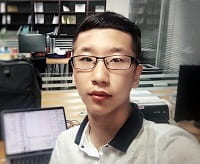
Jiaxing Xu
Research assistant - Nanyang Technological University
Jiaxing is a research assistant at Nanyang Technological University, Singapore. His research interests include artificial intelligence, data mining and deep learning. Currently he is under Prof. Ke Yiping, Kelly’s supervision. As a part of this project, Jiaxing is responsible for exploring graph neural networks towards multimodal brain networks, for the classification of neurological disorders.
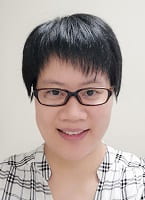
Kelly Ke Yiping
Associate Professor - Nanyang Technological University
Dr. Yiping Ke is an Assistant Professor with the School of Computer Science and Engineering, Nanyang Technological University. She obtained her Ph.D. degree in Computer Science from the Hong Kong University of Science and Technology in 2008 and B.Sc. degree in Computer Science from Fudan University in 2003. Before joining NTU, she was a scientist with the Institute of High Performance Computing, A*STAR and a Research Assistant Professor at the Chinese University of Hong Kong. Her experience has spanned over both academia and industry. She has published over 50 research papers in prestigious journals/conferences, receiving over 2,000 citations. She has served as program committee members and journal reviewers for ICML, NIPS, IJCAI, AAAI, KDD, VLDB, ICDM, SDM, CIKM, ACM TKDD, IEEE TNNLS, IEEE TKDE, VLDBJ, Machine Learning Journal, etc. She has filed 5 US/UK patents with industrial partners. She has secured and managed 9 research grants and industrial funds, and successfully rolled out developed technologies to a variety of domains including business analytics, bioinformatics, fluid dynamics, etc.
Kelly is the Principal Investigator and science leader of the Singapore team.
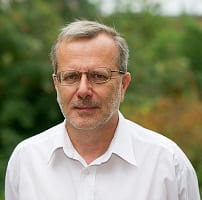
Balázs Zoltán Gulyás
Professor - Nanyang Technological University
Balázs Gulyás is a President’s Chair Professor of Translational Neuroscience at the Lee Kong Chian School of Medicine, Nanyang Technological University (NTU), Singapore where he is also the Director of the university’s Cognitive Neuroimaging Centre. Balázs is a medical doctor with background in clinical (neurology, psychiatry), basic and cognitive neuroscience and with more than three decades of experience in pre-clinical, cognitive and clinical neuroimaging.

Vickie Shim
Senior Research Fellow - ABI UoA
Vickie is a Senior Research Fellow at the Auckland Bioengineering Institute. She completed her PhD in finite element modelling of the hip joint and hip implants at the University of Auckland in 2007.
Since then, she has been conducting various researches related to the musculoskeletal system both in modelling and bioinstrumentation at the Auckland Bioengineering Institute. In recent years, she has expanded her research into the human brain, especially traumatic brain injuries to characterize the injury mechanisms and possible preventative and therapeutic solutions.

David Tse Jung Huang
Senior Research Fellow - CS School UoA
Dr David Tse Jung Huang is a researcher experienced in applied interdisciplinary machine learning. His primary research area is in large-scale streaming data analytics and monitoring data changes. With a background in computer science and chemistry, he has worked with professionals from different disciplines such as healthcare and environmental sciences. His goal is to assist and incorporate machine learning into their daily applied practices with the aim of improving quality and efficiency. His most recent project was with the Waikato DHB to develop machine models to predict daily linear accelerator output changes as part of their robust quality assurance program for radiotherapy treatments. He is also proficient in cloud computing and certified by AWS as an academy educator and solutions architect.
David will be working closely with the science leader Miao to deliver the overall goals of this project with a particular focus on group-based graph analytics.

Alan Wang
Associate Professor - ABI UoA
Associate Professor Alan Wang has more than ten years of research experience in computational radiology, especially in advancing the role of neuroimaging quantifications in health care. He has expertise in developing innovative multimodal neuroimage analysis methods such as tissue segmentation, lesion detection, function localization, fiber projection, volumetric and surface morphometry, structural and functional connectivity etc. based on statistical learning and deep learning theories. He has experience in analysing huge cohorts of patient radiology data with successful applications of early diagnosis, disease understanding and effective treatment of patients with neurodegenerative diseases / neurological disorders.
He will be responsible for the multimodal neuroimaging data analysis, imaging biomarker selection and relevant clinical applications in this project.

Miriam Scadeng
Associate Professor - FMHS UoA
Associate Professor Miriam Scadeng is a research radiologist and MRI scientist with 19 years of experience developing novel high field MRI to investigate clinical and preclinical models of human disease. Her recent studies focus on hypoxia, traumatic brain injury, hydrocephalus, drug abuse, neurodegeneration, and neurogenesis using techniques such as arterial spin labelling to measure cerebral blood flow, and high-resolution diffusion tensor imaging. She is a leader in the field of comparative imaging of anatomy and physiology of various species (humans, dolphins, killer whales, rodents, birds, zebrafish, amongst others) as well as the development of new contrast techniques and agents. She also has expertise in neuroanatomy, gross anatomy, radiological anatomy, and physiology.

Yun Sing Koh
Associate Professor - CS School UoA
Yun Sing Koh is an Associate Professor at the School of Computer Science, The University of Auckland, New Zealand. Her research is in the area of machine learning. Within the broad research realm, she is currently focusing on three strands of research: data stream mining, lifelong and transfer learning, and pattern mining. She has published more than 100 research papers in this field at top venues.
She has been active in the research community including serving as the General Chair at the IEEE International Conference on Data Mining 2021, Workshop Chair at the ECML 2021, Program Co-Chair of the Australasian Data Mining Conference 2018 and as the Workshop Chair for the 15th Pacific-Asia Conference on Knowledge Discovery and Data Mining.
Yun Sing is a key researcher on the project related to machine learning, specifically investigating graph-based deep learning models for brain network analysis.
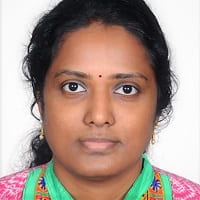
Sophi Shilpa Gururajapathy
Research Fellow - Nanyang Technological University
Sophi is a Research Fellow at Nanyang Technological University, Singapore. She holds a PhD degree from University of Malaya, Malaysia majoring in Intelligent Power System. She has worked on various data analytics projects in power system, automotive and traffic control. Her research interest includes artificial intelligence, machine learning and deep learning. Sophi is currently working under Kelly Ke Yiping on the processing and analysis of Brain MRI data using Graph theoretic methods.

Thomas Lacombe
Research assistant - CS School UoA
Thomas Lacombe is a Professional Teaching Fellow and Research assistant in charge of the project coordination.
Students
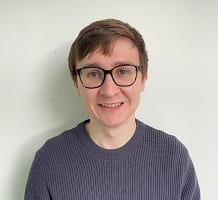
Callum Cory
Doctoral Candidate - CS School UoA
Callum is a Doctoral Candidate within the School of Computer Science at the University of Auckland. His current research includes applying Graph Theory with Deep Learning models, Continual/Lifelong Learning and Brain Network Analysis.
As part of this project he will be looking at applying Graph-based Deep Learning models towards multimodal neuroimaging data, for connectivity analysis and data-driven brain parcellation.
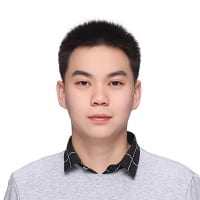
Zhang Aihu
Doctoral Candidate - Nanyang Technological University
Zhang Aihu is a Ph.D. student at the School of Computer Science and Engineering, Nanyang Technological University. He is supervised by Prof. Ke Yiping, Kelly. He obtained his Bachelor of Science degree (Hons, 1st Class) in Statistics from the Chinese University of Hong Kong in 2021. His primary research interest is graph representation learning that completes graph-level or node-level downstream tasks by learning embeddings either in a supervised or an unsupervised manner.

Max Gurr
Master Student - CS School UoA
Max is a fourth year student majoring in Software Engineering and Psychology at the University of Auckland. For his part IV research project, he is looking into how brain parcellations can be created on a scan-to-scan basis, rather than from atlases. He will be exploring current techniques for doing this, and computing connectivity matrices through ROI to ROI analyses on these parcellations. These connectivity matrices will then be passed through a machine learning pipeline to attempt to identify the presence of various neurological and psychiatric disorders.
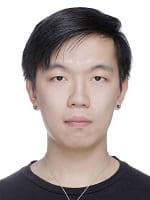
Bian Qingtian DiMarzio
Doctoral Candidate - Nanyang Technological University
Bian Qingtian DiMarzio is a PhD student of Prof. Ke Yiping, Kelly in Nanyang Technological University. His main research direction is recommendation system including graph-based recommendation and graph deep learning methods.

John Yunhan Yang
Dotorale Candidate - CS School UoA
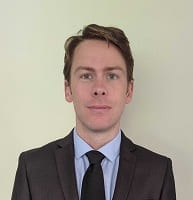
Samuel Weston
Master Student - FMHS UoA
Samuel is a medical student doing a year of research as part of the BMedSci(Hons) programme with a background in Computer Science. He is researching MRI imaging techniques for determining the distribution of neuromelanin in the brain for the purpose of determining MRI biomarkers for early detection of Parkinson’s Disease.

Grace Wen
Doctoral Candidate - ABI UoA
Grace Wen obtained her Bachelor of Engineering (Honours) degree in Engineering Science from the University of Auckland. She is currently pursuing her Doctoral studies in the field of Bioengineering in multimodal neuroimaging data harmonization based on statistical learning and deep-learning theories.
She will be responsible for harmonizing the multimodal neuroimaging data in this project.
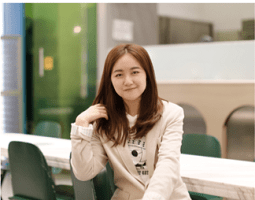
Lei Han
Doctoral Candidate - Nanyang Technological University
Lei Han is a second year PhD student at Nanyang Technological University of Singapore.
She is supervised by Prof. Ke Yiping.
Her research is aiming at developing deep models for graph-level embedding and put better-performance methods into application area. She also needs to tackle problems such as classification or clustering tasks of multi-view graph data.
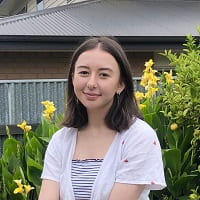
Hana Drysdale
Master Student - CS School UoA
Hana Drysdale is a fourth-year BE(Hons)/BSc conjoint student, specialising in Software Engineering and majoring in Mathematics and Statistics. Her involvement with this research is via her year-long Software Engineering Part IV project, which spans 2021. Partnered with Max Gurr for this project, her focus is on how machine learning techniques can be applied to functional connectivity matrices in the diagnostic process.